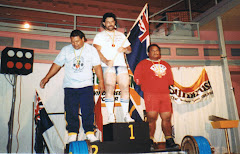
How many corporates and businesses (big or small) are starting Mentoring or Coaching programs?
From my experience there are quite a few. And rightly so. In-house programs like these are proven to increase staff engagement and productivity. At the same time they can either minimise conflict or support a worker back to being fully engaged once again, after experiencing personal difficulties. Makes sense to do this, and it can all be tracked back to saving 10's if not 100's of thousands of hard earned, business dollars!
BUT - there is confusion out there in the business world!
Many have not, and do not know the distinctions each of these have terms have. Coaching or Mentoring, are they synonimus terms? Aren't they actually the same thing? This leads me to the purpose of this brief article.
The Distinctions
The following description are the distinctions that the Meta-Coach Foundation ( http://www.meta-coachfoundation.com/ ) has made between the 2 terms, along with some additional thoughts of my own on the subject. (no apologies for using some jargon here)
Coaching:
The Coach does NOT tell, direct or recommend the client on what or how to do anything!
- The Coach does NOT have a content or context focus
- The Coach does NOT provide psycho-thearapy
- The coach does NOT "heal" the client
- The Coach does NOT decide for the Coachee the outcome for the coaching session or how to reach the clients goal for them
- The Coach does NOT coach the client at a basic or primary needs level, but at at a transformational and self actualising level (A.Maslow)
- Coaching is where the client or coachee is the expert in the exchange between coach & client.
- The coach is the expert in facilitating the client to achieve their desired outcome.
- The coach is an expert in transformational, self actualising change processes
- The Coach coaches byway of a coaching conversation. Either face to face, by phone or electronically.
- The Coach is an expert in identifying the structure of the clients current situation and facilitates the process of creating the resource structure the client needs, to achieve their outcome.
- The Coach transforms performance and engagement as a result of the coaching conversation
- The Coach facilitates the coachee to be more of who they can be
- The Coaching relationship is one of equality between the 2 parties
- The Coach asks questions and meta-questions, in such a way that they provoke, probe, praise and promote the client to pursue their desired outcome
- The Coach defines specific Key Performance Indicators (KPI) that details the clients outcome for the coaching session and uses these KPI's to define when the client has achieved their outcome.
If you think you've been offering a business coaching program and aren't aligned with what I've bullet pointed above. Then it's highly likely what you are doing is not Coaching but Mentoring (or something else?).
These disctinctions have been quite a shock for some who have attended our coaching programs. Initially they thought they were offering an in-house coaching program to staff. And found, based on the description I've given you they were not coaching staff at all! Quite a revelation don't you think?

Even worse, I've met people who have thought they were attending a coach certification training, and later found they had attended something that was not about coaching at all but more like a melting pot of teaching, training, psychology, mentoring mixed bag of technqiues, sold as a "Coach" training.
How would you know any different, if you didn't know the distinctions of what coaching is and is not - right? Well... now you do. Don't you?
Oh... that's right... I haven't finished yet, have I.
So what's Mentoring?
Mentoring
- Mentoring is where the Mentor is the expert in the relationship.
- The Mentor has been in the same or a similar role as the mentoree with usually many years of experience under their belt
- The Mentor makes recommendations, directs, or tells the less experienced mentoree what to do in specific situations
- The Mentor works with content and context
- The Mentor guides the mentoree to be more like themselves. For them to do what the Mentor would do in a given situation, by learning from the mentor's vast experience and knowledge
- The Mentor has a skill, competency based focus
- The relationship between the Menotor and mentoree is an unequal one, due to the higher level of experience the Mentor has in their professional field of expertise.
The need for a clear distinction between these 2 terms is paramount for defining eaxctly what it is a Coach does and does not do. This is the distinction that Meta-Coach Foundation has made.
The Need for Coaching Skills by Mentors
The skill sets of either role are distinctly different. Can a Mentor use Coaching Skills to enhance a mentoring program. YES! When both are brought together a mentoring program is able to offer so much more than mentoring is on it's own. The most common complaint I hear from Mentors is "How do I get them to do what I know they need to do?" or "How do I get them to come up with the ideas themselves?". Sounds like you need the skill sets of a Coach. (To be more specific, you need a Meta-Coach, but that's another article).Coaching is less stressful as I don't have to know anything about the content, skill or be more experienced than the coachee. Coaching leaves the coachee empowered, as they come up with their own answers to any problems they have, themselves. Is it any wonder mentoring programs are embracing coach training. To add greater value to an existing "in-house" mentoring program is the big pay-off for them.
Mentoring Success NOT Guaranteed
Mentors have found that they may be an expert in their chosen field, but have no coaching skills that ensure the transfer of their knowledge to a less experienced person. This is the real purpose of a mentoring program. To accelerate the new kid on the block to a greater level of productivity and responsivness, quicker. By learning from the gained experience of a Mentor. The effective exhange of knowledge by the mentor, requires coaching skill sets and the art of facilitation.
Haven't we seen similar examples in sport. Where a multiple world champion, was unable to reach the same level of success as a professional coach?

(An example in our countries prized sport, Rugby - would be Tana Umanga's coaching jaunt in France, after such a successful playing career as a NZ All Black, Super 12 & Regional rugby player and Captain. Resulting in an inability for him to currently bridge the gap between professional player to International Coach)
Why does this happen?
Because they were unable to transfer their skill to others. It requires more than experience and mentoring. It requires Coaching skills that focus on structure and facilitation and not skill sets, subject content and context.
Ok... enough now.
I hope this has been helpful in defining the difference between Coaching and Mentoring. There is much more to know but as I said earlier, this is a brief article. So to make sure it is I'm finished now. Bye!
For more info log onto my own website: http://www.ignition.org.nz/ or the Meta-Coach site at http://www.meta-coaching.org/

















































2 comments:
Thanks Colin, a great precis of the difference between coaching & mentoring. The terms are incorrectly interchanged often in business & we would all be better off if more of us understood this important distinction.
Ant Carter
Cardinal Solutions
Thanks Ant, I agree also. Coaching can, and does enhance an existing in-house mentoring program.
Coaching answers what Mentors often say - "How do I get them to think for themselves?" and "I'm tired of always having to come up with the answers".
Coaching brings life to a well established mentoring program, yet few understand the differences. Cheers!
Post a Comment